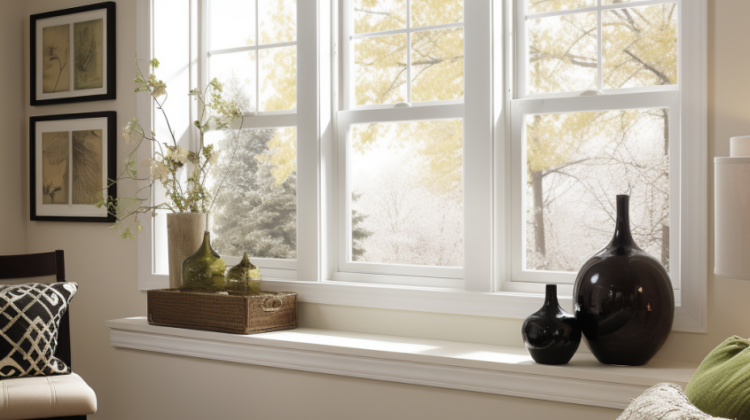
Windows is vital in every home, offering essential benefits such as natural light, ventilation, and a glimpse of the surrounding environment. When selecting window materials, fiberglass and vinyl are two widely chosen options. Each material brings its distinct advantages and considerations. This article will explore the specific characteristics of fiberglass and vinyl windows, equipping you with the knowledge necessary to make an educated decision for your home.
Durability and Strength
Renowned for their outstanding durability, fiberglass windows are recognized for their exceptional strength. These windows are crafted by embedding glass fibers within a resin material, resulting in a product highly resistant to cracking, warping, and rotting. With their ability to endure extreme temperatures, fiberglass windows are ideal for regions with challenging climates. Additionally, fiberglass windows possess a lower expansion coefficient, minimizing the likelihood of expansion or contraction due to temperature fluctuations. This feature significantly reduces the risk of seal failure, ensuring long-lasting performance and reliability.
Vinyl windows, on the other hand, are made from polyvinyl chloride (PVC) material. While they are generally durable, they can be susceptible to warping, especially in hot climates. Extreme temperature fluctuations may cause vinyl windows to expand and contract, potentially compromising their performance and longevity. However, advancements in vinyl window technology have led to the development of more robust, resilient vinyl options.
Energy Efficiency
Both fiberglass and vinyl windows offer excellent energy efficiency benefits. Fiberglass windows have inherent insulation properties, providing a superior thermal barrier for your home. They have high R-values, which measure their resistance to heat transfer. As a result, fiberglass windows can contribute to maintaining a cooler interior during summer and a warmer environment in winter, reducing the need for excessive heating and cooling usage. Consequently, this energy efficiency can lead to cost savings on your utility bills.
While not as naturally insulating as fiberglass, vinyl windows can still provide good energy efficiency when properly installed. Many vinyl windows have insulated glass and weatherstripping, improving their energy performance. Additionally, vinyl windows can be filled with foam insulation to enhance their thermal efficiency.
Aesthetics and Design
Both fiberglass and vinyl windows offer a range of design options to suit various architectural styles. Fiberglass windows can be manufactured with a wood-grain texture, providing the look of natural wood without the associated maintenance. They can also be painted in various colors to match your home’s exterior or interior design.
Vinyl windows are available in a wide selection of colors and finishes. They are known for their versatility and can be customized to match your home’s aesthetic preferences. However, it’s important to note that vinyl windows cannot be painted once installed, so choosing a color that you will be happy with for the long term is essential.
Maintenance and Longevity
One of the advantages of fiberglass windows is their low maintenance requirements. They are resistant to rot, corrosion, and peeling, making them highly durable and long-lasting. Fiberglass windows do not require regular painting or staining and can be easily cleaned with mild soap and water.
Similarly, vinyl windows are virtually maintenance-free. They do not require painting or staining and can be cleaned with simple household cleaners. However, it’s worth noting that extreme weather conditions can affect the lifespan of vinyl windows, so regular inspection and maintenance are recommended to ensure their optimal performance.
Both fiberglass and vinyl windows offer unique advantages for homeowners. Fiberglass windows excel in durability, strength, and energy efficiency, while vinyl windows provide a wide range of design options at an affordable price point. Ultimately, choosing between fiberglass and vinyl windows depends on your needs, budget, and personal preferences. Consulting with a reputable window professional can help you make an informed decision and ensure that you select the best option for your home.
